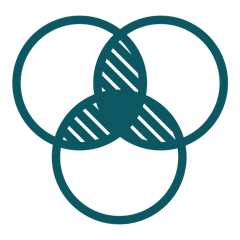Many people will enter their public health degree program without an exact idea of what field they may enter following graduation. The public health field is remarkably broad and choosing a specific career path in advance might be an unrealistic goal, especially before the in-depth exposure to the various domains of public health. An exception to this would be for someone mid-career and interested in an MPH as a way to further their current professional aspirations. For example, someone who has been working in the mental health field or knows that this is their specific interest may know that their concentration while in school for public health should be related to population health or social and behavioral science.
The best online master of public health choice for most students entering graduate school is one that provides maximum exposure during the first few months to as many topics as possible. Another reason to choose an accredited public health program is that all accredited programs must demonstrate that all graduating students will have exposure in the following competencies: Evidence-Based Approaches to Public Health, Public Health & Health Care Systems, Planning & Management to Promote Health, Policy in Public Health, Leadership, Communication, Intersectional and/or Intersectoral Practice, and Systems Thinking6. The breadth of these competencies ensures that you will gain exposure in virtually every area that a job might require.
Many schools follow a curriculum model where there are required first-semester courses in several of the classic core public health domains (e.g., epidemiology, environmental health, sociomedical sciences, biostatistics, and health policy). Choosing a program that follows this curriculum model is another strategy to ensure that the first few months of a graduate program will have broad topic exposure, which helps choose a concentration and eventual career path.
Frequently, these domains correlate to the school’s departments and there are additional specialization options within that department. For example, the sociomedical sciences department might offer a concentration in health promotion.
Jobs Following an Online MPH
The distinction between an in-person and online degree choice may be lessening, fueled in no small part by the forced pivot to online learning caused by Covid-19. Of the top five public health programs as ranked by U.S. News and World Report, four had an online MPH available as of June 202211. One report of over 1,800 online learners found that only one-tenth were concerned about the perception that a potential employer might have of an online degree12.
The variety of jobs available to someone with an MPH are remarkably broad. There are a myriad of types of jobs available to someone with an MPH; however, the real challenge for a recent graduate is in narrowing the scope of their job search to only those positions for which they are uniquely qualified. Using the time it takes to complete an MPH to concentrate on a given topic (e.g., mental health) or practice within the field (e.g., evaluation) is essential to ensure that your job search can be focused on only those positions that are the best match.
One of the unique facets of a public health career is the extent to which the field is perpetually evolving. In the 70s and 80s, there was a focus on dental health that led to fluoride being added to drinking water, while the 90s saw the implementation of seat-belt laws, and the early 2000s saw a dramatic increase in anti-tobacco legislation. Within each of these examples, there are a variety of ways in which someone with an MPH would be employed.
The movement for increased tobacco legislation required research on the long-term health impacts of smoking (data analysis and health informatics), lobbying of politics to enact laws and regulations (health policy), and positive media campaigns around the health benefits of tobacco cessation (health promotion). Each of these types of jobs within public health would be an option for someone with an online MPH.




